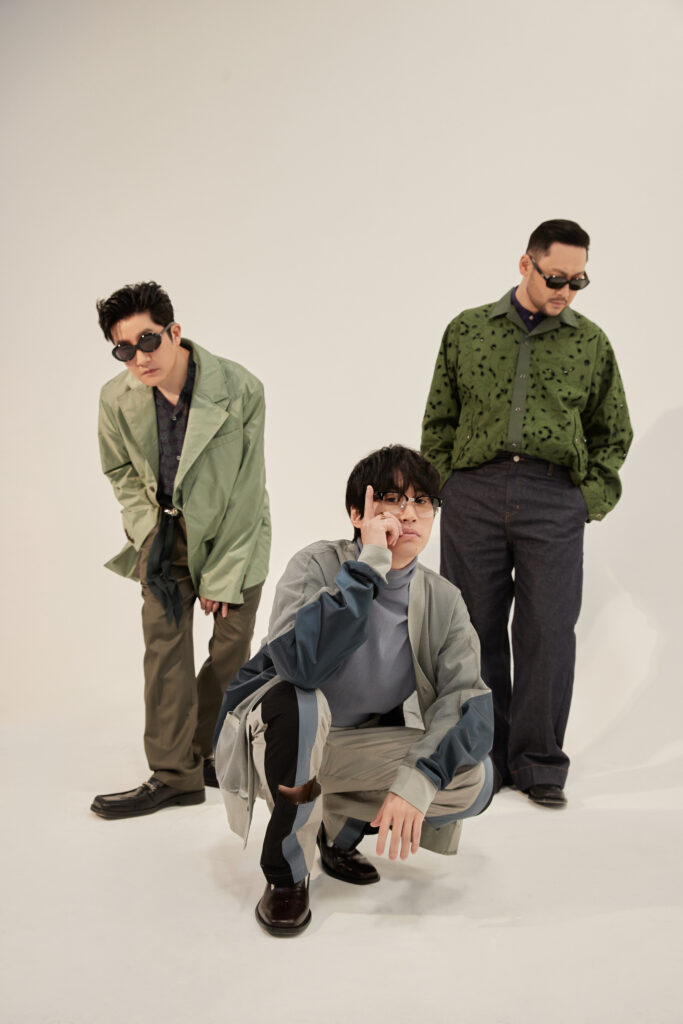
Before he was rocking arenas as the leader of Epik High, one of the most influential and enduring hip-hop groups in South Korea, Tablo was Daniel Lee, just another Stanford student, pursuing bachelor’s and master’s degrees in English.
But being involved with the Asian American arts scene on campus sparked a transformation inside the young Korean Canadian.
“我确信我会成为一个作家,编剧或filmmaker,” Tablo, 41, tells The Chronicle during a video call from his home in Seoul. “Then, by the end of school, I was going to be a rapper. I think it was an important, informative period of my life when I evolved from whoever I was before I was Tablo to Tablo.”
Now Epik High returns to the Bay Area to rock Oakland’s Fox Theater on Tuesday, April 12, before making its second appearance at the long-awaited Coachella Valley Music and Arts Festival in Southern California.
“We have two years of pent-up energy,” he says. “It’ll be like kaijus entering the Fox Theater. It’s going to be Epik High on speed.”

It will also be a homecoming for Tablo, whose college friends are still local. Familiar haunts like Amoeba Records and Groove Merchant, where he used to dig for beats, beckon for his attention.
“Any time I go to the Bay Area, it brings it all back,” Tablo said. “I feel like it’s my childhood home more than any other place.”
The concert is in support of the group’s 11th album, “Epik High Is Here 下, (Pt. 2),” which is filled with intense clap-backs and deep testimonials. Their sound reflects their love of classic boom-bap hip-hop with forays into R&B, with Tablo the group’s cerebral assassin, co-lyricist Mithra Jin a good counterpuncher and DJ Tukutz the musical director and beat maker.
As Korean hip-hop’s elder statesmen, Epik High is fiercely vocal, speaking out against societal issues and pressures. Since forming in 2001, the group’s rebellious music, message and actions have been a huge influence to many third-generation K-pop groups that came after them, likeStray KidsandBTS.
“I don’t think Epik High has ever fit in, and that’s why we could command the space,” Tablo says. “Ironically, all throughout our careers, the mainstream K-pop artists liked us and our music. We were stuck in the middle of being completely out of the system and also within that whole sphere.”

Many of the songs on their latest release are introspective and revealing. Tablo says the main message he wants to relate to listeners is that it’s OK to be the person you are, something he says he never heard growing up in a deeply religious household. The song “I Hated Myself (Tablo’s Word)” was born out of fear of being different.
“I had to aspire for heaven on earth, by fearing the alternative which was literal hell,” he says. “Every good thing I was made to want, I had to simultaneously feel great fear. Also, when I traveled outside of the norm, or when anyone discovered I was a little different from the norm, I was meant to feel shameful, like I was doing something wrong. Like I’d be punished for it in some way. So even before other people punished me, I punished myself.”
His confusion and self-doubt multiplied exponentially in 2010. At Epik High’s peak of popularity, Tablo was the victim of asmear campaignthat captivated South Korea and put his life on hold for more than two years. A group of online trolls didn’t believe that Tablo graduated from Stanford and spent years harassing the rapper and his family. The bizarre details of the case, known as “TaJinYo” (loosely translated as “tell the truth, Tablo”), are captured in a new Vice/iHeartRadio podcast, “Authentic: The Story of Tablo,” which premiered in February. It’s a riveting series about fake news and cancel culture, before the terms were popularized, and their lasting effects on Tablo. The South Korean president at the time, Lee Myung-bak, weighed in on the controversy over Tablo’s Stanford credentials during a cabinet meeting, calling it a“witch hunt that should never happen again.”
One of the songs that came out of this experience is “Family Portrait,” which forms the album’s emotional crux. Tablo raps about his father who died in 2012, he says, as a result of the stress the baseless accusations and harassment brought upon the family. Mithra Jin adds verses about his own personal hardship growing up in Goheung.
“I still don’t understand this national phenomenon, where for two years all of Korea was fixated on me and my identity,” Tablo reflects. “My dad passed away because of that. I don’t think I ever dealt with it. I literally went to work on a new Epik High album exactly one week after my dad passed away. … This song was my way of working it out.
“It worked for me, and I hope it works for other people who are dealing with family issues.”
Another track, “BRB,” is about leaving the past behind. He wrote it as a fictional novella about forced exile — something he thinks about a lot in the aftermath of TaJinYo.
“I know at any point the public can turn against me and bleed me out,” he says. “But I’d be back. Don’t ever think you can send me away for good.”
Epik High:Featuring Woosung. 7 p.m. Tuesday, April 12. $59.50-$89.50. The Fox Theater, 1807 Telegraph Ave., Oakland.thefoxoakland.com
